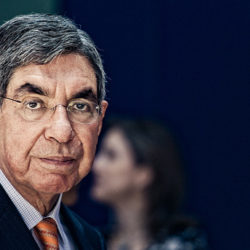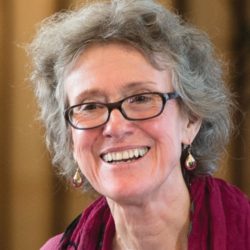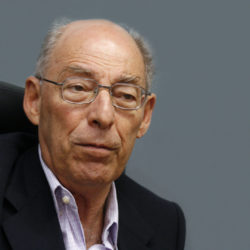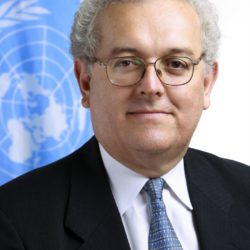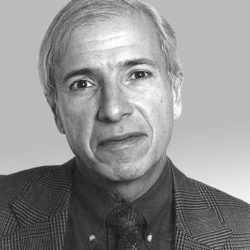Theme
The theme of the SASE 2008 meeting is suggested by Karl Polanyi’s The Great Transformation. Polanyi interprets the history of industrial society in the 19th and 20th centuries in terms of a pendulum-like “double movement.” One side of that movement is toward free and flexible markets that underpin, and in some sense foster, the material and technological gains associated with the Industrial Revolution. The other side is a reaction to the disruption that these markets impose on people’s lives, an attempt to preserve the social relations through which people understand themselves and find meaning in their lives. The current era of globalization mirrors that of the late 19th and early 20th centuries in many ways. Markets are being established, liberalized, and deregulated throughout the world. Goods, finance, and people are moving within and across frontiers at an ever-accelerating pace. And people are bewildered, looking for alternatives to their increasingly chaotic and insecure lives. Furthermore, the reaction emerging today recalls the politics and policies of the Great Depression and the immediate postwar period, when the second half of Polanyi’s double movement came into effect. But with one critical difference: While the theories that have guided deregulation and globalization in the closing decades of the 20th century are the direct descendants of the laissez faire ideas that guided globalization a century ago, the philosophies that informed the second half of the double movement -that is, the social legislation that grew out of the Great Depression- have in many ways been discredited. Today’s reaction is therefore more instinctive and visceral than deliberate and considered, and the question is whether it will indeed be possible to reconcile these two movements in theory or through practical politics. We will examine the prospects for reconciliation in a series of panels on the contemporary relevance of four major social and economic theorists: Marx, Keynes, Polanyi, and Hirschman.
A fifth panel will specifically explore the possibility that these older social theorists have been rendered obsolete by new technologies, especially information networking, which, if true, would call for new understandings of economic development, north-south relations, and the relationship between the economy and the society. The practical dimension will be explored through papers and panels drawing on grounded research on specific industries and geographic areas and devoted, where possible, to innovative approaches to critical markets (for labor, capital, raw materials, and the like). Special attention will be focused on the reaction against neoliberalism and the Washington Consensus in Latin American countries; to parallels in other countries and regions of the world; to the economic roots of that reaction; and to changes in economic and social policy that have emerged as a result not only in the region but throughout the world.
To explore the interaction between scholarly theory and political practice, we draw on the Latin American tradition of combining public service with careers as intellectuals and academicians. Oscar Arias, the Nobel Laureate and current President of Costa Rica, is one of the most prominent representatives of this tradition. He will also be the keynote speaker at the meeting. SASE will invite a group of prominent Latin American politicians with similar backgrounds to join him as panelists and discussants in roundtables with each other and with the academic participants.
Program Committee
Local Organizing Committee
- M.Sc. Olman Villarrealra
- Mayra Achio
- Dr. Carlos Palma
- M.Sc. Isabel C. Araya
Logistics Committee
Presidential Address. Second Thoughts: On Economics, Sociology, Neoliberalism, Polanyi’s Double Movement and Intellectual Vacuums
Michel J. Piore (Massachusetts Institute of Technology)
San José, Costa Rica, July 22, 2008
I want to discuss this afternoon the relationship between sociology and economics and the role that relationship plays – or could play – at the current political juncture as we move away from the dominance of neoliberalism and the Washington Consensus in the formulation of public policy. To do so, however, I have to abjure two positions which I had taken in this organization in the past. I was first invited to SASE by Axel van den Berg in 1999 as the lone economist on a panel about the relationship between economics and sociology. I argued there that the debate the panel set up between economics and sociology was misplaced; that sociologists should stick to their last, forget their preoccupation with economics, and do their own thing. If they did it well, they would inevitably provide the alternatives to economics that they thought necessary.
I am, however, about to enter here into the very debate which I counseled so strongly against then.
But I am also going to take issue with the theme of the meeting, the tension between economic flexibility and social stability, or more particularly with the development of the theme in the more extensive Call to the Meetings for which I am largely responsible. The Call to the Meetings argues that the tension between flexibility and stability is being played out today in an intellectual vacuum, in sharp contrast to similar periods in the past in which there were a series of well articulated and intellectually coherent alternatives to the neoliberal vision of a market economy. Several of these alternative visions are being reviewed in panels at these meetings. The point that no comparable alternatives have emerged today was challenged from the very moment I began to circulate the meeting document and what then emerged in discussions with colleagues and commentators in Latin America, but also in Europe and the United States, was actually a fairly coherent and consistent alternative vision. I became aware of this vision too late to begin to think through what it meant for the implicit argument and certainly too late to revise the meeting statement. In a sense, that is what I am going to do here.
Download full presentation (pdf)
Travel Grant and Graduate Student Stipend Winners
SASE extends its warm congratulations to the recipients of this year’s travel grants and graduate student stipends.
Travel Grants
Jose-Luis Alvarez-Galvan (London School of Economics, UK), “Workers’ Experiences in the Subcontracted Call Centre Industry in Mexico City”
Daniel Friel (Universidad de San Andrés, Argentina), “A Variety of Capitalism Approach for Latin America: Institutions and the Case of Arcor in Argentina”
Graduate Student Stipends
Luciano Ciravegna (London School of Economics, UK), “Multinationals, Technological Development and the Role of Social Ties: Evidence from the Costa Rican ICT Cluster”
Charles Eesley (Massachusetts Institute of Technology, USA), “Who Jumps Into the Sea and When? Entrepreneurship and Policy Change in China”
Marcelo Mondelli (Dublin City University, Ireland), “Small States in MERCOSUR and Regional Constraints for Integration”
Adam Saunders (Oxford University, UK), “New Perspectives on the Political Economy of Social Policy Change: The Case of British Earnings-related Unemployment Insurance”
Heike Schroeder (Middlesex University Business School, UK), “Comparative HRM and the Life-course Paradigm: A Discussion of Theoretical Approaches to Studying Employment Decisions in Later Life Across Countries”
Antoine Vernet (Université de Nanterre, France), “From a Competitive Labor Market to a Population of Organizations”
Michael Vicente (Université de Technologie de Compiègne, France), “La carrière des développeurs de logiciels libres, une analyse des réseaux sociaux”
